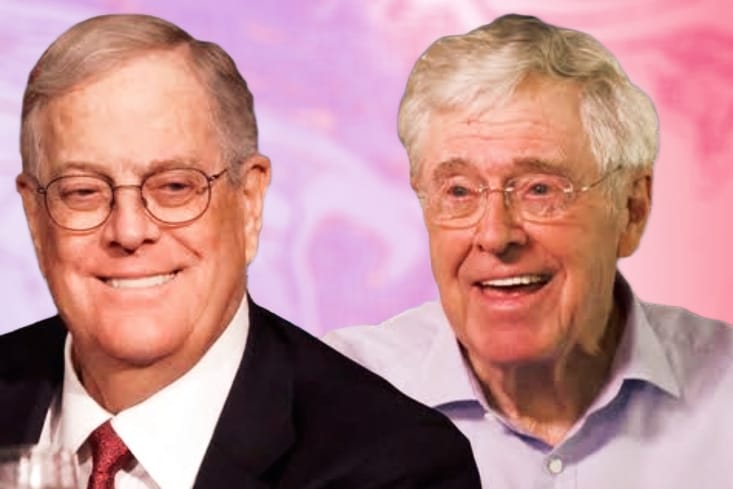Charles and David Koch, two of the most influential figures in American business, are best known for their leadership of Koch Industries, one of the largest privately-held companies in the world. Through their visionary business strategies, political influence, and philanthropic activities, the Koch brothers have left a lasting imprint on the business landscape, politics, and society at large.
Their journey from humble beginnings to becoming key players in both the business world and political sphere is one of remarkable growth and controversy. Charles Koch, the younger of the two brothers, took over the family business, which had been founded by their father, Fred Koch, in the 1940s. Under Charles’ leadership, Koch Industries grew exponentially, becoming an industrial giant with a vast portfolio spanning oil refining, chemicals, energy, manufacturing, commodities trading, and more.
This article will explore the history of Charles and David Koch, their influence on global business, the ethical debates surrounding their wealth, their philanthropic efforts, and their profound impact on American politics. We will also delve into their shared beliefs in free-market capitalism, libertarianism, and how their business practices and political actions have sparked both admiration and controversy.
Early Life and Beginnings of the Charles and David Koch
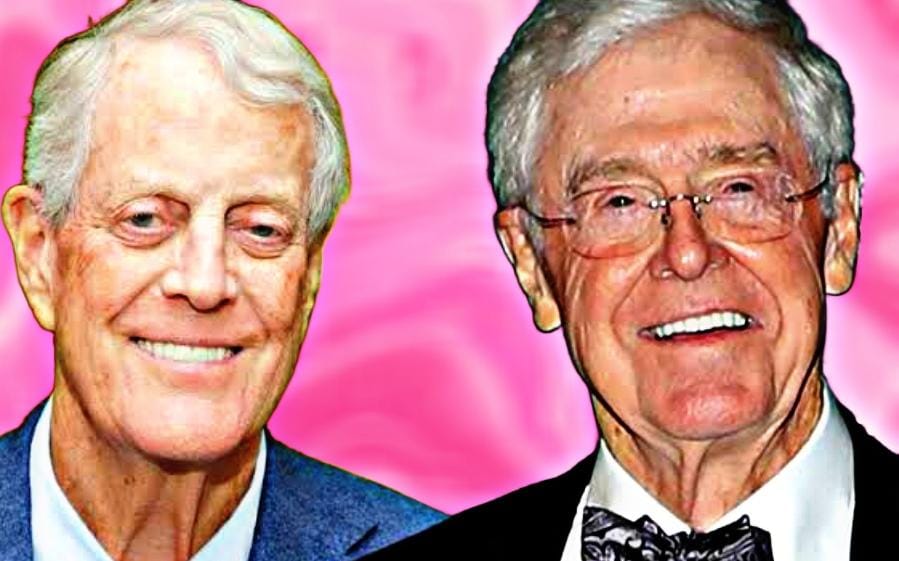
Fred Koch: The Founding Father of Koch Industries
The story of the Charles and David Koch success begins with their father, Fred C. Koch, who founded Koch Industries in 1940. Fred was a chemical engineer who invented a more efficient method for refining crude oil. He founded the Koch Engineering Company, which eventually evolved into Koch Industries, primarily focused on oil refining and technology. Fred’s methods and innovations revolutionized the industry and laid the groundwork for his family’s future success.
Fred Koch’s business grew steadily, but his staunch political beliefs also played a pivotal role in shaping the family’s legacy. A prominent critic of government regulation and a supporter of limited government, Fred’s views on business and politics would influence both Charles and David as they took control of the company.
Charles and David Koch’s Early Years
Charles Koch was born on November 1, 1935, in Wichita, Kansas. David Koch was born three years later on May 3, 1940. Both Charles and David showed an early interest in business, economics, and the workings of the free market, largely influenced by their father’s entrepreneurial success and ideological beliefs.
After graduating from Massachusetts Institute of Technology (MIT) in 1957, Charles Koch took a more analytical approach to business, earning degrees in chemical engineering and management. His academic focus on economics and business would later play a significant role in how he structured Koch Industries.
David Koch also pursued a path in education, graduating with a degree in chemical engineering from MIT in 1962. While Charles was already active in the management of Koch Industries, David joined the company in 1970. The brothers worked together to expand the company into new industries, but Charles held the reins of leadership, while David took a more prominent role in marketing and business development.
Koch Industries: A Business Empire
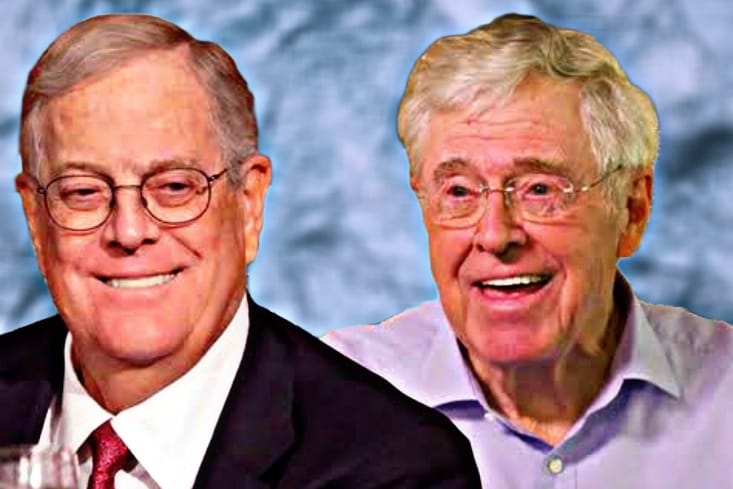
From Oil Refining to Diversification
Under Charles Koch’s leadership, Koch Industries grew into a vast empire. What started as an oil refining company quickly diversified into various industries. The company expanded into areas such as chemicals, petrochemicals, agriculture, energy, technology, and manufacturing. Today, Koch Industries is one of the largest privately held companies in the world, with annual revenues exceeding $115 billion.
Key acquisitions and expansions included the purchase of Georgia-Pacific, a major paper products company, in 2005, and the acquisition of Molex, a supplier of electronic components, in 2016. Koch Industries’ massive diversification has allowed the company to become a global leader in several sectors, making it one of the largest employers in the United States.
Charles Koch’s philosophy of market-based management (MBM) played a significant role in Koch Industries’ success. MBM is a management philosophy that emphasizes a decentralized, market-driven approach to business. This method encourages individual employees to act as entrepreneurs, incentivizing creativity and innovation throughout the company.
Koch Industries’ Global Presence
Today, Koch Industries operates in more than 60 countries, with thousands of employees across its various subsidiaries. The company’s products and services impact nearly every sector of the global economy, from energy production to consumer goods.
Some of the most notable subsidiaries of Koch Industries include:
- Koch Ag & Energy Solutions: A global leader in fertilizer production, energy, and chemicals.
- Georgia-Pacific: One of the world’s largest manufacturers of paper products and building materials.
- INVISTA: A major producer of fibers and textiles, including nylon and spandex.
- Molex: A leading provider of electronic solutions for industrial applications.
- Koch Supply & Trading: A major player in commodities trading and energy markets.
Koch Industries’ vast operations across these sectors are driven by Charles Koch’s principles of innovation, value creation, and a commitment to creating solutions that improve the quality of life for people around the world.
The Koch Brothers and Their Libertarian Philosophy
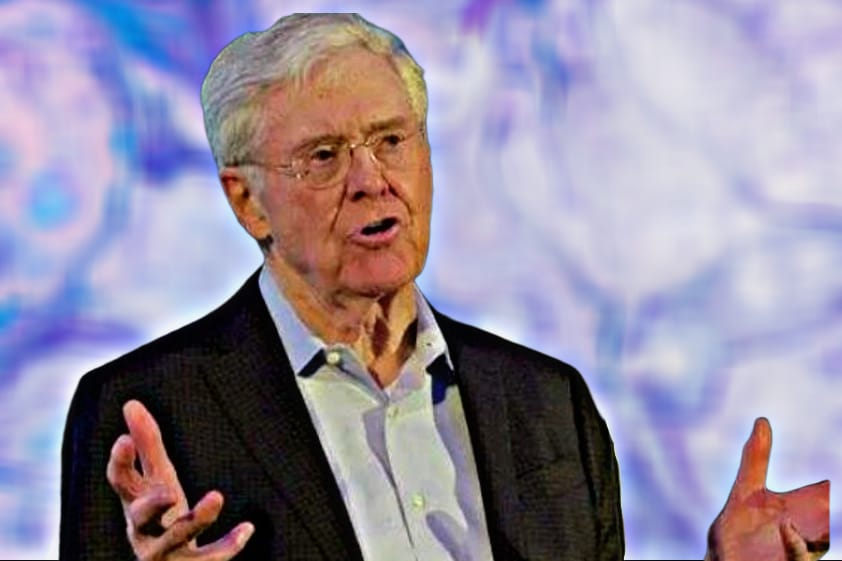
The Koch Network: Political Influence and Libertarian Advocacy
Charles and David Koch are perhaps equally as well-known for their political and ideological advocacy as they are for their business success. Both brothers have long been staunch proponents of libertarianism and free-market capitalism. They have consistently advocated for limited government, low taxes, and deregulation, believing that free markets, rather than government intervention, should guide the economy.
The Koch brothers’ political influence is largely exerted through a network of think tanks, political action committees (PACs), and advocacy organizations that support their libertarian beliefs. The most prominent of these is the Koch Network, a powerful political and lobbying organization that has spent billions of dollars advocating for conservative and libertarian causes. The Koch Network includes groups like:
- Americans for Prosperity (AFP): A political advocacy group that supports tax cuts, deregulation, and limited government intervention in the economy.
- The Cato Institute: A libertarian think tank that advocates for free markets and limited government.
- The Reason Foundation: A non-profit organization that focuses on free-market public policy.
Through these organizations, the Charles and David Koch have played a crucial role in influencing U.S. political discourse. They have provided substantial financial support to candidates, PACs, and lobbying efforts that align with their ideological views, especially in the areas of tax reform, energy policy, and business deregulation.
The Charles and David Koch in U.S. Politics
While the Charles and David Koch political involvement has often focused on domestic issues, they have also been active in promoting policies that favor their business interests. For example, they have lobbied for lower corporate taxes, reduced environmental regulations, and energy policies that promote fossil fuels, such as oil and natural gas production.
Their political efforts have attracted both support and criticism. Proponents argue that the Koch brothers are advocates for economic freedom and individual liberty, seeking to reduce government intervention in people’s lives. On the other hand, critics argue that their political donations and lobbying efforts disproportionately benefit the wealthy and powerful at the expense of ordinary citizens.
David Koch’s political contributions, particularly during the 2012 and 2016 U.S. presidential elections, earned him a place among the most prominent figures in American politics. Although David passed away in 2019, his influence on the political landscape remains felt, with his charitable and political efforts continuing to shape the future of U.S. policy.
Influence on the 2016 U.S. Presidential Election
During the 2016 U.S. presidential election, the Charles and David Koch were instrumental in mobilizing support for libertarian and conservative candidates. Initially, they distanced themselves from Donald Trump, expressing concern over his populist rhetoric and political style. However, after Trump’s election, Charles Koch emphasized the importance of working with the new administration to pass pro-market policies, including tax reform and deregulation.
The Charles and David Koch political influence helped shape key elements of Trump’s economic agenda, particularly the Tax Cuts and Jobs Act of 2017, which lowered corporate tax rates and aimed to boost business growth. Their advocacy for deregulation also aligned with the Trump administration’s efforts to roll back government regulations in various sectors.
Philanthropy: The Charles and David Koch Charitable Contributions
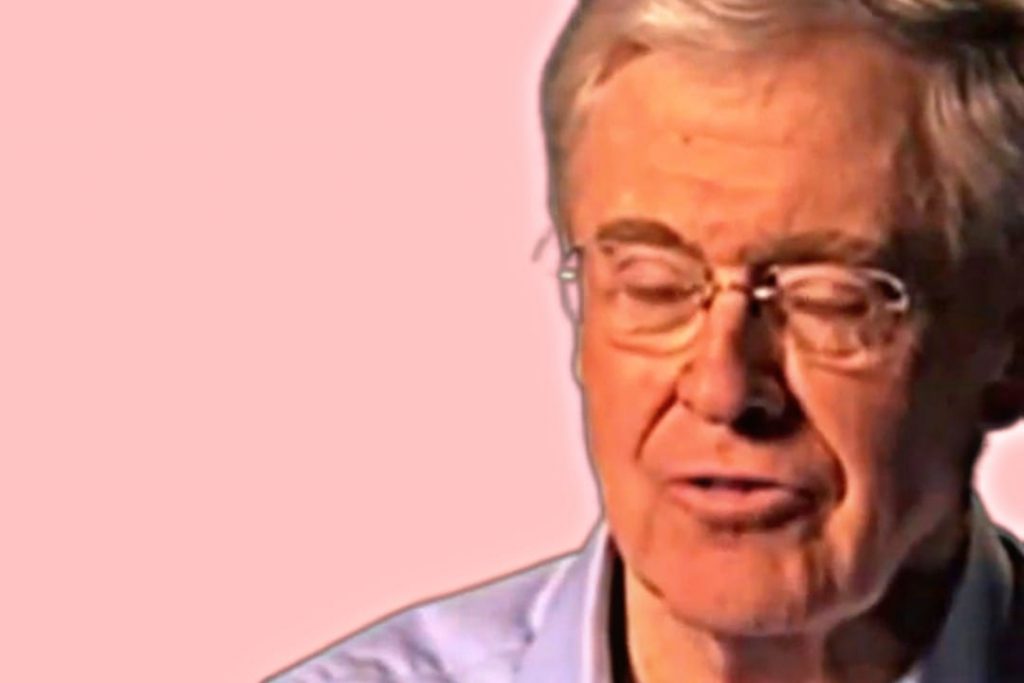
While the Koch brothers are known for their political and business endeavors, they have also made substantial contributions to philanthropy. Their charitable efforts focus on areas such as education, medical research, the arts, and public policy research.
David Koch, in particular, was known for his significant contributions to medical research, particularly in the field of cancer research. He donated millions of dollars to the Memorial Sloan Kettering Cancer Center and helped fund the David H. Koch Center for Cancer Research. He also made substantial contributions to MIT, his alma mater, and various arts organizations.
Charles Koch has also been active in supporting philanthropic initiatives, with a focus on promoting freedom, entrepreneurship, and market-based solutions to social problems. Through the Koch Foundation, he has donated millions to education, criminal justice reform, and economic development initiatives.
However, the Charles and David Koch philanthropic activities have been met with criticism as well. Some argue that their donations are often strategically aligned with their political and business interests, and that their charitable efforts sometimes serve as a means to reinforce their ideological beliefs.
Legacy and Impact: The Charles and David Koch Lasting Influence
The legacy of Charles and David Koch is a complex and multifaceted one. Their contributions to the business world, political landscape, and philanthropic sectors have been transformative, but they have also sparked significant debate about the role of wealth and influence in shaping public policy. The Charles and David Koch have demonstrated how individuals can use their resources to not only build empires but also shape the political and ideological direction of a nation.
Through Koch Industries, their leadership has helped build one of the most successful and diversified privately held companies in the world. Through their political network, they have played a crucial role in advocating for free-market principles, limited government, and individual liberty.
The Charles and David Koch influence will continue to be felt in the realms of business, politics, and philanthropy for years to come, and their legacy remains a symbol of the power and complexity of wealth in modern society.

